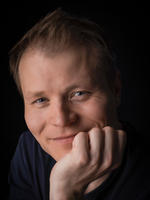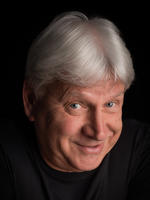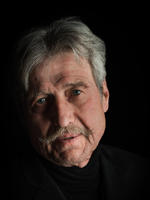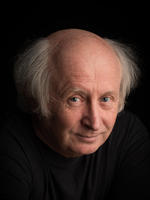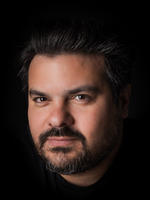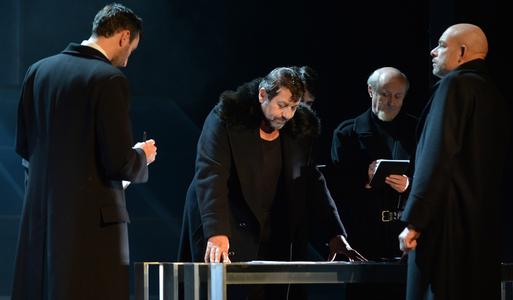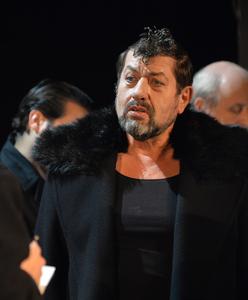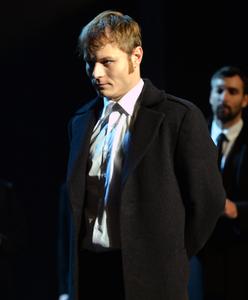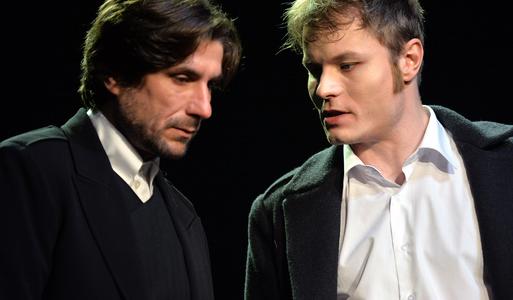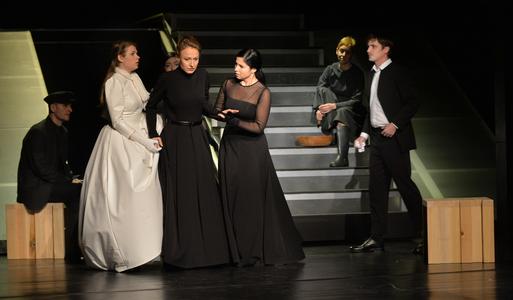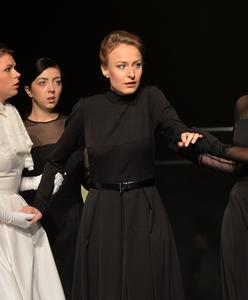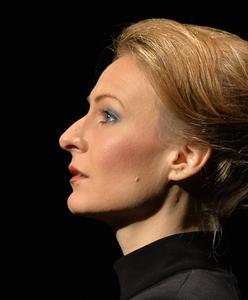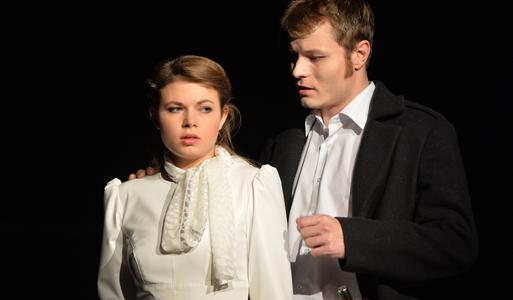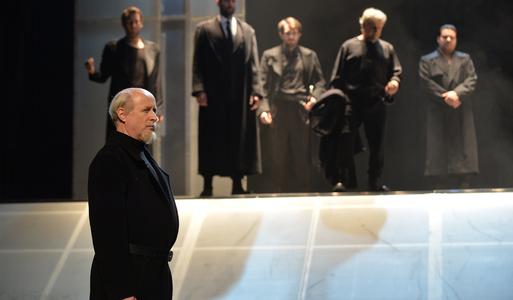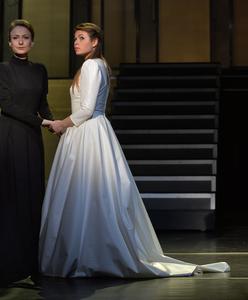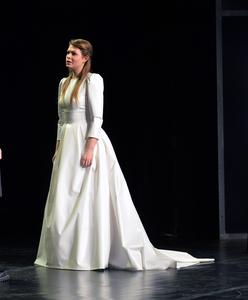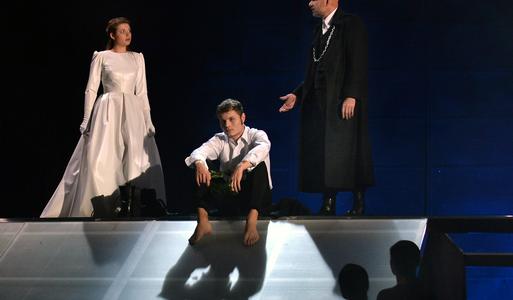IT IS TRUE THAT THERE WAS NO HELP FOR ME ON THIS EARTH
Jiří P. Kříž 22. November 2015 zdroj Právo
Heinrich von Kleist returns to Europe’s stages in waves; the Prince of Homburg only rarely. Perhaps the London (2010) and Salzburg (2012) productions inspired the authors of the new translation, Václav Cejpek and Monika Kučerová. One thing’s certain - the German classical writer’s last drama has finally appeared on the stage of Brno City Theatre after many years, directed by Mikoláš Tyc.
They act without pathos
Prince of Homburg is a strange drama. It bears the elements of a great tragedy but has a happy end. The director, Tyc, respects the gloomy virtues of Kleist´s work. The actors convey his thoughts with humility, with an accent on feelings but without pathos. Lukáš Janota in the title role is the embodiment of a romantic hero. Eliška Skálová completes the story as pure and innocent Natalie.
Viktor Skála in the role of the Elector embodies strictness - it is hard to say whether he forgives because he wishes to or as a result of coercion. Lenka Janíková as his better half helps him to solve this puzzle. It is clear just from their names that Zdeněk Junák, Jan Mazák and Zdeněk Bureš are born leaders.
Jiří P. Kříž, Právo, 22. 11. 2014
PRINCE OF HOMBURG: A PLAY FULL OF CONTRASTS
Vratislav Mlčoch 16. November 2014 zdroj www.babocka.vram.cz
The simple yet functional and, in fact, multifunctional stage is supplemented only by impressive lighting; the black and white costumes are in tune with the black and white conception of the characters but they don´t match the civilian and contemporary clothing of the soldiers and officers, who are constantly at the battlefield for the whole duration of the play. The contemporary clothing and set are juxtaposed with the protagonists’ somewhat archaic way of speaking. Even though the translator has consistently used modern vocabulary, he has left the blank verse from the beginning of the 19th century in its original form. Moreover, there are some archaic expressions and flowery comparisons that contrast with the timeless message of the play and the contemporary costumes. In fact, the very end of the play is also full of contrasts and unexpected twists and leaves it up to the spectator to decide what happened to the hero: Was he executed or freed? Was he a hero or a coward? However, I can tell you that even though the play is as somewhat lengthy as any classic work can be, there are a great many good bits and the ending is impressive. Not only the actors but also the whole production team of Brno City Theatre put on a professionally polished performance.
THE PRINCE OF HOMBURG IN BRNO
Peter Stoličný 8. November 2014 zdroj www.i-divadlo.cz
The Brno production of this work at Brno City Theatre, in Václav Cejpek and Monika Kučerová´s excellent translation and with dramaturgy by Jan Šotkovský, accentuates the dispute between feelings and honour. On one side stands a young person´s passion and love, and on the other, military honour and duty. This juxtaposition lets one look into the deeper dimensions of human behaviour that show themselves when mortal danger is near. It does need to be admitted that not even the playwright himself, with his disordered soul, viewed the story in such a way. He was a romantic, inspired by ancient tragedies concerning honour and justice. However, later (perhaps mainly after the film production with the famous Gerard Philip in the role of the Prince of Homburg, and principally in France) this drama started to be played not so much romantically as existentially. The drama is even sometimes compared with Camus´ Outsider, even though Camus´s hero accepts the death sentence in prison in the end, while Kleist´s prince is freed.
The director of Brno’s production is Mikoláš Tyc. His direction is wise and very simple at first sight. He simply believes in the power of the text and trusts the actors. We don´t know how complicated the journey was to determine how to interpret each of the individual characters. For the spectators it is simply important that all of them seemed natural and believable even in the most near-unnatural dramatic situations that Kleist prepared for his heroes. In the case of this play, the statement that everybody acted well really means everybody. However, two roles should be mentioned – Viktor Skála´s Elector, who acts both decisively and hesitantly, and then perhaps the titular Prince of Homburg, which may prove to a key role in Lukáš Janota´s acting career. The actor mastered the complicated and multi-layered portrayal of his hero in such a convincing way that he left the spectators breathless.
The director also works with sounds in the production very well, both in the case of the somewhat demanding scene featuring the fights commented by the heads of the armies against outbursts of martial pandemonium, and in the background music (Jiří Hájek) heard between the individual scenes. The characters are dressed mainly in black, almost everyday clothing, with contemporary high laced boots (costumes by Barbara Wojtkowiak); in the last act the main hero is helpless and barefoot.
The Drama Theatre’s production of Kleist´s eternally controversial drama is, without a doubt, a great experience - brave, revelatory and successful.

.jpg)




